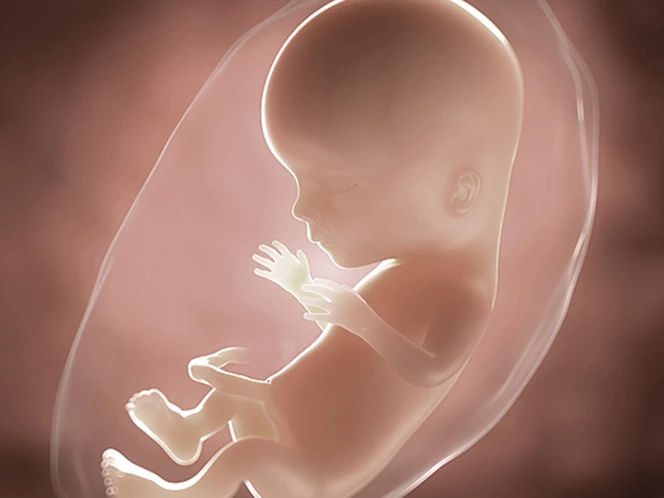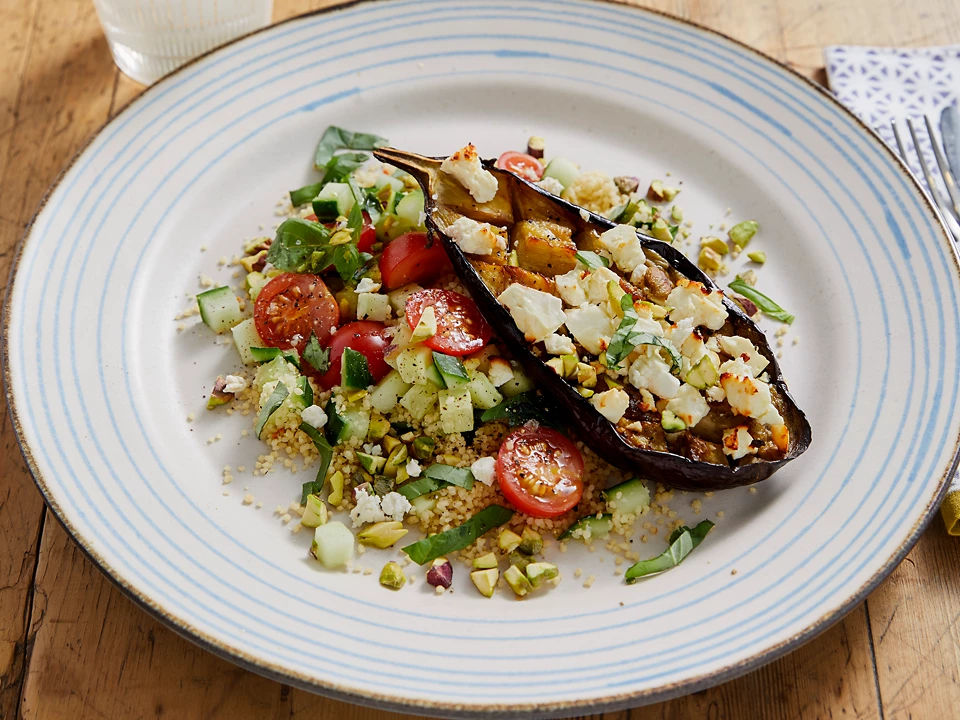Your baby is now the size of an apple, around 10.1cm in size and about 70 grams in weight. Along with more lanugo (the hair that covers their body to keep them warm) your baby’s started growing eyebrows and eyelashes. Although their eyes remain closed, they’re becoming sensitive to light. Along with this, your baby is starting to hear1.
15 weeks pregnant: Pregnancy Symptoms & Baby Development

Explore pregnancy stages week by week
15 weeks pregnant is how many months?
Month 4 (Trimester 2)
Baby development at 15 weeks

How big is my baby? And what does my baby look like?
Your baby can hear sounds in your body such as your heartbeat, voice and digestive system. They can also pick up muffled sounds from outside2, but can’t make sense of them yet3.
Pregnancy at 15 weeks (second trimester)
Body changes
You're starting to show
You may notice a few people staring at your belly. Your baby’s growing quickly and your womb is also filling with amniotic fluid and the placenta. It’s getting crowded in there, so don’t worry if you feel an occasional jabbing pain in your side1.
Itchy skin
Your hormones may start making your skin feel itchy. Unscented moisturisers can help, as can taking a bath. If it starts to become distracting, especially at night, see your doctor or midwife as there’s a small chance you could have a liver condition called obstetric cholestasis1.
Watch for infection
You have more blood flowing around your pelvic area which can cause your body to produce more of the milky fluid called leucorrhoea that keeps your vagina clean and free from infection. Sometimes this can appear as a clear, white or creamy-coloured vaginal discharge. If it changes colour, becomes pungent or changes texture, call your doctor or midwife1.

Pregnancy symptoms at 15 weeks
For many women, unpleasant side-effects of pregnancy have passed - but there are still a few who may still be experiencing things like:
- Bloating and constipation
- Indigestion and heartburn
- Morning sickness
- Hot flushes
- Dizzy spells and headaches
- Swollen hands and feet1
Hydration stations
It’s important to stay hydrated when you’re pregnant. Drinking enough water is essential for your own health and your baby’s development. This also extends to milk, fruit juices, squash, and even soup. Tea and coffee also count but please take care to limit your caffeine intake. You shouldn’t have more than 200mg of caffeine each day while you’re pregnant. That’s equal to:
- 2 mugs of tea, and 1 can of cola
- 1 mug of instant coffee and 1 can (250ml) of energy drink
Also, watch out as caffeine can appear in products including chocolate (usually small amounts), some medicine and some soft drinks4.

The science behind Hydration, powered by Nutricia
Around 60% of the human body is water, and we naturally lose two litres a day. Water keeps our complex systems working properly, while helping us absorb nutrients and flush out toxins5. During pregnancy, increased demands on your body mean you’ll need more water than usual to avoid becoming dehydrated6.
The European Food Safety Authority recommends women drink around 2 litres of water daily, with an extra 300ml each day during pregnancy7. That’s about 9–10 250ml drinks each day. Try to avoid fizzy drinks and drinks high in sugar. With little nutritional value, it’s best to seek a healthier alternative6. Fruit juice can be high in sugar, but as long as it’s pure fruit, one 150ml glass can also count as part of your daily 5-a-day fruit and vegetable intake8.
Foods to avoid while pregnant
There’s nothing specific to avoid during individual weeks, but throughout your pregnancy, it’s wise to give the following a miss:
- Raw and undercooked meat
- Unpasteurised milk and dairy products
- Liver, and excessive consumption of foods high in vitamin A
How much weight should I gain during pregnancy?
Weight gain during pregnancy depends on your pre-pregnancy weight, and varies a great deal from mother to mother. Most women gain between 10kg and 12.5kg (22–28lb) while pregnant, some of which is the weight of the growing baby9. Learn everything you need to know about weight gain in pregnancy.
related articles
Read More

Need some help?
You can get quick answers to common questions in our FAQs.
Alternatively, if you need help with general pregnancy or baby advice, or maybe on using or ordering our products - our expert team are always on hand to talk about feeding your baby.
- NHS Start 4 Life. 2nd trimester, week 15 [Online]. Available at: https://www.nhs.uk/start4life/pregnancy/week-by-week/2nd-trimester/week-15/#anchor-tabs [Accessed October 2019].
- NHS. You and your baby at 15 weeks pregnant [Online]. Available at: https://www.nhs.uk/conditions/pregnancy-and-baby/15-weeks-pregnant/. Page last reviewed: 17 July 2018. Next review due: 17 July 2021.
- Deans A. Your New Pregnancy Bible, The experts’ guide to pregnancy and early parenthood. 4th ed. London: Carroll & Brown Publishers Limited, 2013.
- NHS. Should I limit caffeine during pregnancy? [Online]. Available at: https://www.nhs.uk/common-health-questions/pregnancy/should-i-limit-caffeine-during-pregnancy/ Page last reviewed: 2 May 2018. Next review due: 2 May 2021.
- NHS. Dehydration [Online]. Available at: https://www.nhs.uk/conditions/dehydration/ Page last reviewed: 9 August 2019. Next review due: 9 August 2022.
- NHS. Water, drinks and your health [Online]. Available at: www.nhs.uk/Livewell/Goodfood/Pages/water-drinks.aspx Page last reviewed: 14 June 2018. Next review due: 14 June 2021.
- European Food Safety Authority. Scientific Opinion on Dietary Reference Values for water. EFSA Journal 2010;8(3)1459:48.
- NHS. 5 A Day FAQs [Online]. Available at: https://www.nhs.uk/live-well/eat-well/5-a-day-faqs/ Page last reviewed: 16 October 2018. Next review due: 16 October 2021.
- NHS choices. How much weight will I put on during my pregnancy? [Online]. Available at: https://www.nhs.uk/chq/Pages/2311.aspx?CategoryID=54 Page last reviewed: 18 October 2018. Next review due: 18 October 2021.
Last reviewed: 23rd December 2019




